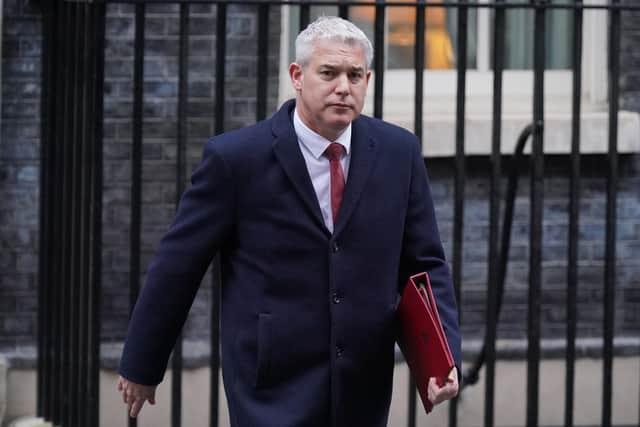Accountability finally awaits water companies polluting our waterways and seas - Andrew Vine
Whether in town, country or coast, residents have long been infuriated by the dumping of sewage with apparent impunity by Yorkshire Water, which along with the rest of the country’s water companies, has a terrible record on pollution.
It can – and does – protest that matters are getting better, but its history of fouling rivers and seas amounts to a stain on Yorkshire in more than one sense.
Advertisement
Hide AdAdvertisement
Hide AdLike countless others, I have favourite Yorkshire riverside walks, among them along the Wharfe, at Ilkley or Bolton Abbey, the Aire near Castleford and the Esk as it runs down to the sea at Whitby.


Yet all these great rivers have suffered pollution in recent years, sometimes to a revolting degree. One wild swimmer I know told me how she had waded into the Wharfe to find herself amid faeces and used sanitary products.
Our coastline has suffered too. Hardly had the schools broken up for summer last year than families heading for the seaside were warned against bathing at Scarborough and Bridlington.
And only a few months ago, Yorkshire Water paid out £1m in compensation to the Yorkshire Wildlife Trust and Yorkshire Dales River Trust for illegally pumping sewage into Hookstone Beck, in Harrogate, in 2016, killing nearly 1,500 fish.
Advertisement
Hide AdAdvertisement
Hide AdYet despite the companies’ behaviour amounting to a national scandal that has spanned years, they have not been properly held to account.
Effluent streaming into rivers and seas should only happen in exceptional circumstances when the water system is at risk of being overwhelmed, but it has become commonplace as companies have taken advantage of a lack of independent oversight to make such discharges a matter of routine.
And it has proved the truth of the old adage that where there’s muck, there’s brass.
Their mostly overseas-based ownerships have cashed in handsomely from water privatisation while neglecting their environmental responsibilities and investing too little in making the water system fit to serve a growing population.
Advertisement
Hide AdAdvertisement
Hide AdThe degree to which they have profited as a tide of filth poured into watercourses is demonstrated by the £26m in bonuses senior executives were paid between 2020 and 2023, which is barely less nauseating than swimming through human excrement.
But now there is at least a glimmer of hope that accountability finally awaits the polluters, thanks to last week’s announcement by the Government that it is ending the frankly absurd practice of allowing the water companies to regulate themselves.
Instead, they will be subject to closer checks by the Environment Agency.
Doubtless public fury and revulsion at pollution informed the decision by Environment Secretary Steve Barclay, but even so he deserves credit for finally getting a grip on a lax regulatory regime that has allowed water companies to behave in an unscrupulous and cynical manner.
Advertisement
Hide AdAdvertisement
Hide AdLeaving aside the obvious question of what took the Government so long to act when pollution has been a scandal for at least a decade, it remains to be seen whether this is the reckoning that the polluters deserve.
It is far from certain that the Environment Agency has the resources to step up inspections and Mr Barclay should make sure it does.
He should also have the boldness to go farther, first in adopting Labour’s position of promising to ban financial bonuses at polluting firms and secondly by exploring the feasibility of clawing back those already paid to invest in improving the system.
Mr Barclay was reportedly “shocked and appalled” at the extent of illegal sewage discharges. He shouldn’t have been. Environmental campaigners, anglers, swimmers, and yes, even people out for a riverbank stroll or a day at Yorkshire’s seaside could have told him that this was a problem on a massive scale.
Advertisement
Hide AdAdvertisement
Hide AdThere cannot be another public utility so reviled as the water industry is because of pollution.
It is actively offensive that in an age where so many people are passionate about preserving the natural environment, an industry with a central responsibility for conservation has instead been guilty of contamination.
If Mr Barclay really wants to get the public on the Government’s side, he ought to make it clear to the water companies that as the polluters, they must pay whatever it takes to improve matters and not pass the costs along to their customers.
Comment Guidelines
National World encourages reader discussion on our stories. User feedback, insights and back-and-forth exchanges add a rich layer of context to reporting. Please review our Community Guidelines before commenting.